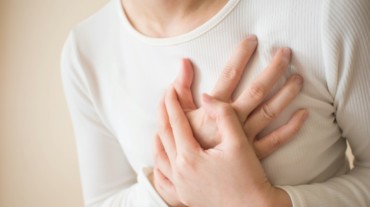[ad_1]
The death of Ambareesh Murthy, the 51-year-old Co-founder and CEO of Pepperfry, following a cardiac arrest, came as a shock to many as he was fairly young and fit. Not long ago, popular television actor Nitesh Pandey also succumbed to a cardiac arrest at 51. Over the past few years, cases of cardiac arrest have been increasing among middle-aged people, which has raised questions yet again. Why are younger people getting cardiac arrests so often?
Sudden cardiac arrest is a critical condition in which your heart stops beating suddenly. It causes an electrical shock that makes your heart stop suddenly by making your cells unable to receive oxygen, which can turn fatal just in a few minutes. While studies have found that early defibrillation is becoming more widely available, there is no significant improvement in the number or survival rates.

Are the chances of getting a cardiac arrest more likely at higher altitudes?
The answer to this is yes! There is a link between cardiac arrest and high altitude. The reduced oxygen levels and other physiological changes that occur at higher altitudes can potentially trigger cardiac arrest, says Dr Pradeep Kumar D, Senior Consultant of Cardiology, Manipal Hospital, Yeshwanthpur, Karnataka. He explains that people who are used to these altitudes may not suffer these effects, but those who live at altitudes below 1000 m above sea level develop various health conditions like high altitude pulmonary edema, cerebral edema and cardiac arrest. The chances of all these problems increase when people ascend to areas over 3500 m above sea level.
The main reasons for this are reduced oxygen levels, altered humidity and low temperatures. The reduced oxygen concentration in the air that we breathe causes various compensatory reactions in the body. There is an increase in the heart rate, coronary vasodilatation, increased respiratory rate, and an increase in blood concentration. All these compensatory mechanisms increase the tendency of an individual with preexisting coronary artery disease to develop coronary ischemia and as a consequence rhythm disturbances of the heart which can lead to sudden cardiac death, he adds.
Raising awareness about the potential risks and taking appropriate precautions can help individuals enjoy their high-altitude experiences while minimizing the risk of cardiac events. It’s important for individuals to prioritize their health and safety when traveling to high-altitude destinations.
What are the most common symptoms of cardiac arrest?
While the chances of cardiac arrest increase at high altitudes, the symptoms of cardiac arrest at high altitude are similar to those at lower altitudes. However, the symptoms may occur suddenly, and added stress can increase the severity of these symptoms. Some of the most common symptoms you should look out for, include:
- Chest pain or discomfort
- Shortness of breath
- Dizziness or lightheadedness
- Nausea
- Vomiting
- Unusual fatigue
- Irregular or abnormal heartbeat

Tips to prevent cardiac arrest at high altitudes
Preventing cardiac events at high altitudes involves careful planning and awareness. Here are some tips by Dr Kumar D to prevent getting a cardiac arrest at high altitudes:
Select Topics of your interest and let us customize your feed.
PERSONALISE NOW
1. Gradual ascent
If possible, ascend to high altitudes gradually, allowing your body time to acclimatize. This can help reduce the strain on the cardiovascular system.
2. Stay hydrated
Proper hydration is essential at high altitudes to maintain blood volume and circulation. Avoid excessive caffeine and alcohol, as they can contribute to dehydration.
3. Know your health status
Individuals with pre-existing heart conditions should consult their healthcare providers before traveling to high altitudes. Your doctor can advise on the safety of such trips and provide appropriate guidance.
4. Avoid physical exertion
Don’t overexert yourself, especially in the first 24 hours after reaching high altitudes. Also, try to carry less weight than 30 percent of your own body weight to avoid exhausting yourself.
5. Emergency preparedness
Be aware of the nearest medical facilities and emergency services in the area. Travel with a group if possible and inform others about your plans.
6. Recognise the symptoms
Be familiar with the symptoms of cardiac events and seek medical attention immediately if you or someone else experiences them.
7. Medication management
If you have heart-related medications, consult your doctor about adjustments you may need to make at high altitudes.
Raising awareness about the potential risks and taking appropriate precautions can help individuals enjoy their high-altitude experiences while minimising the risk of cardiac events. It’s important for individuals to prioritise their health and safety when traveling to high-altitude destinations.
[ad_2]
